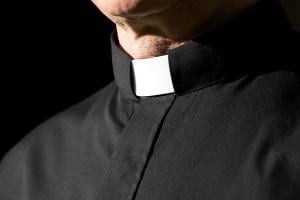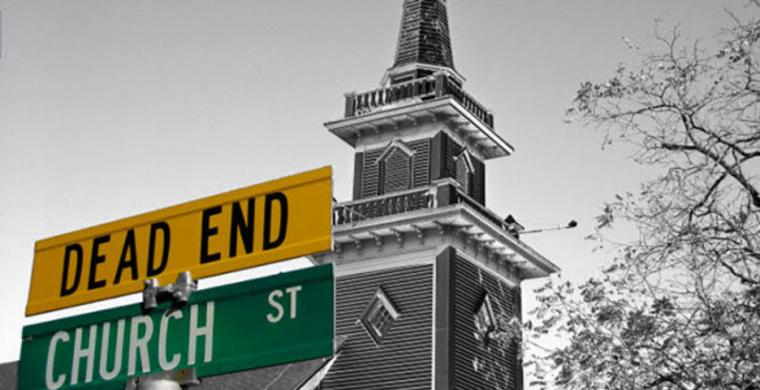Singing is not just for fun or enjoyment but is a central expression of life of the church. Singing is also proclamation, one of the most profound ways we confess the faith. The Lutheran Church has just such a body of hymns, so central to our identity that to lose them is to lose part of that identity. These core hymns or Kernlieder belong not to a particular time but to all time. Similar to these core hymns has been the acknowledgement that certain hymns belong in the hymnals of every denomination. This is surely a good thing and I do not mean to disparage such a list of common hymns but this is not exactly what I am talking about. These sturdy hymns of old are not only strong in tune (the usual way hymns become favorites) but in text -- that is, in what they confess.
The truth is that even if you sing 5-6 hymns per week, that is still a small number and, since the real estate for hymns on Sunday morning is valuable, we need to be careful in our choice of hymns to make sure we are using our resources wisely and not wasting the people's time with hymns that may not be bad but may not be particularly good either. Now not every hymns has to say everything but what it says should be sturdy, solid, and meaty -- well connected to the lectionary and effective in confessing and teaching the faith. Hymns are never neutral. They say something and what they say must be judged according to the faith.
The truth is that you can judge a great deal by what a person's favorite hymn is and a great deal about a congregation by what hymns they love to sing. This is not about musical taste but about the faith that is sung -- what it is and whether it is consistent with our creeds and symbols. Indeed, one of the basic problems with many hymns but especially praise songs is that they don't say much at all and what they do say expresses more feeling than substance. While that is not universally true, it is typically true and explains why such songs do not have the staying power of the old hymns.
The inestimable Pastor Rick Stuckwisch has prepared a list of 60 or so and I have grown to appreciate his list. While I might quibble about a choice or two, it is a good list on which to begin to build. If you are in a Lutheran congregation in which these hymns might be considered new (though none of them are recent), it is a place to begin as we teach the faith through song. The good doctor has also listed them by tier and suggested that they be sung a minimum number of times per year as to remain part of the very familiar hymnody within the life of the parish. You take a look at his list and tell me what you think. By the way, you can listen to Dr. Stuckwisch on this very topic by clicking here.

First Tier (at least six times per year)
Savior of the Nations, Come (LSB 332)
O Morning Star, How Fair and Bright (LSB 395)
A Lamb Goes Uncomplaining Forth (LSB 438)
Wake, Awake, for Night Is Flying (LSB 516)
Salvation unto Us Has Come (LSB 555)
Dear Christians, One and All, Rejoice (LSB 556)
A Mighty Fortress Is Our God (LSB 656)
Lord, Thee I Love with All My Heart (LSB 708)
Second Tier (at least five times per year)
Of the Father’s Love Begotten (LSB 384)
To Jordan Came the Christ, Our Lord (LSB 406)
My Song Is Love Unknown (LSB 430)
Christ Jesus Lay in Death’s Strong Bands (LSB 458)
Triune God, Be Thou Our Stay (LSB 505)
O Love, How Deep (LSB 544)
Lord Jesus Christ, with Us Abide (LSB 585)
O Lord, We Praise Thee (LSB 617)
At the Lamb’s High Feast We Sing (LSB 633)
Lord, Keep Us Steadfast in Your Word (LSB 655)
Lord of Our Life (LSB 659)
Jesus, Thy Boundless Love to Me (LSB 683)
I Walk in Danger All the Way (LSB 716)
To God the Holy Spirit Let Us Pray (LSB 768)
Praise the Almighty (LSB 797)
May God Bestow on Us His Grace (LSB 823)
Third Tier (at least four times per year)
O Lord, How Shall I Meet You (LSB 334)
Jesus, Grant That Balm and Healing (LSB 421)
Sing, My Tongue, the Glorious Battle (LSB 454)
Come, Holy Ghost, God and Lord (LSB 497)
In the Shattered Bliss of Eden (LSB 572)
Thy Strong Word (LSB 578)
These Are the Holy Ten Commands (LSB 581)
God’s Own Child, I Gladly Say It (LSB 594)
All Christians Who Have Been Baptized (LSB 596)
All Who Believe and Are Baptized (LSB 601)
From Depths of Woe I Cry to Thee (LSB 607)
Let All Mortal Flesh Keep Silence (LSB 621)
Wide Open Stand the Gates (LSB 639)
Sing with All the Saints in Glory (LSB 671)
O God, My Faithful God (LSB 696)
From God Can Nothing Move Me (LSB 713)
Evening and Morning (LSB 726)
Rejoice, My Heart, Be Glad and Sing (LSB 737)
Jesus, Priceless Treasure (LSB 743)
In the Very Midst of Life (LSB 755)
Our Father, Who from Heaven Above (LSB 766)
Sing Praise to God, the Highest Good (LSB 819)
O God, O Lord of Heaven and Earth (LSB 834)
We All Believe in One True God (LSB 954)
Isaiah, Mighty Seer in Days of Old (LSB 960)
Fourth Tier (at least three times per year)
All My Heart Again Rejoices (LSB 360)
Come, You Faithful, Raise the Strain (LSB 487)
Come, Holy Ghost, Creator Blest (LSB 498)
Father Most Holy (LSB 504)
Christ Sits at God’s Right Hand (LSB 564)
Now, My Tongue, the Mystery Telling (LSB 630)
Behold a Host, Arrayed in White (LSB 676)
For All the Saints (LSB 677)
Entrust Your Days and Burdens (LSB 754)
Why Should Cross and Trial Grieve Me (LSB 756)
Kyrie! God, Father (LSB 942)


















